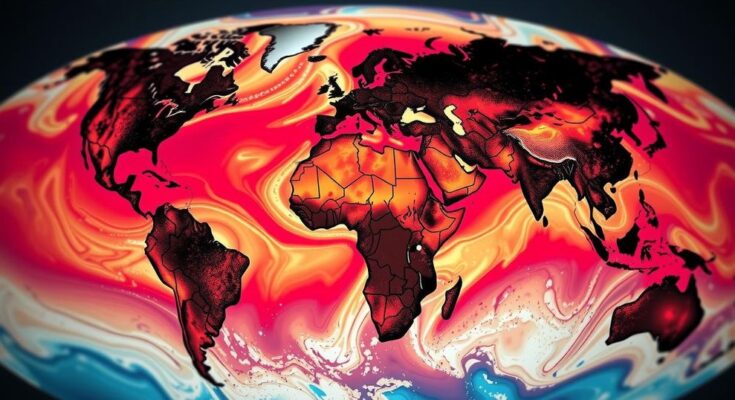Gavin Schmidt, director of NASA’s GISS, revealed in March 2024 that 2023 was 0.2°C hotter than expected, leading to an examination of rapid climate change influences. Cleaner emissions from ships and power plants may paradoxically contribute to accelerated warming, complicating climate model predictions and necessitating further research into the climate system.
In March 2024, Gavin Schmidt, a prominent climate modeller and director of NASA’s Goddard Institute for Space Studies (GISS), acknowledged the perplexing trends in global warming, particularly the unusually high temperatures recorded in 2023, which exceeded expectations by approximately 0.2°C (0.4°F). Schmidt’s reflections denote a significant scientific conundrum about the factors contributing to this rapid warming, highlighting an unexpected correlation between cleaner emissions from ships and power plants and the acceleration of climate change. As researchers continue to analyze the data, the unexpected climatic anomalies of 2023 prompt an urgent reassessment of current climate models and their predictive capabilities. This situation underlines the necessity for a comprehensive understanding of both natural and anthropogenic influences affecting global temperatures, alongside a critical evaluation of policies aiming to mitigate climate change impacts.
The phenomenon of rapidly increasing global temperatures poses significant challenges for climate science and environmental policy. Understanding the interplay between emissions reductions and climate dynamics is critical for developing effective strategies to combat climate change. Recent observations indicate that while cleaner emissions from industrial sources and maritime activities are advantageous for local air quality, they may inadvertently contribute to increased warming due to complex atmospheric interactions. Such contradictions prompt essential discussions within the scientific community about refining models and enhancing predictive accuracy regarding climate behavior.
The acknowledgment from Gavin Schmidt regarding the unpredictable climate dynamics of 2023 emphasizes the urgency for climate scientists to re-evaluate current paradigms of understanding and forecasting climate change. As cleaner emissions unexpectedly correlate with rising temperatures, it becomes paramount for researchers to delve deeper into the underlying mechanisms at play. The complexities of climate science necessitate ongoing adjustments to models and strategies for effectively addressing global warming and its far-reaching effects.
Original Source: www.economist.com




